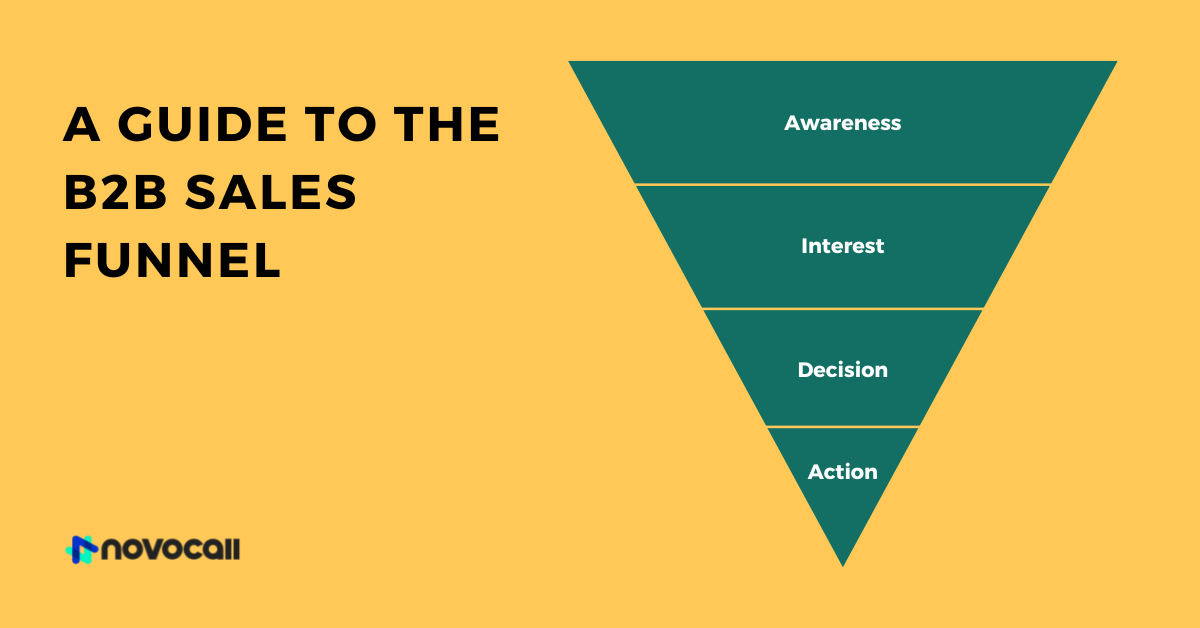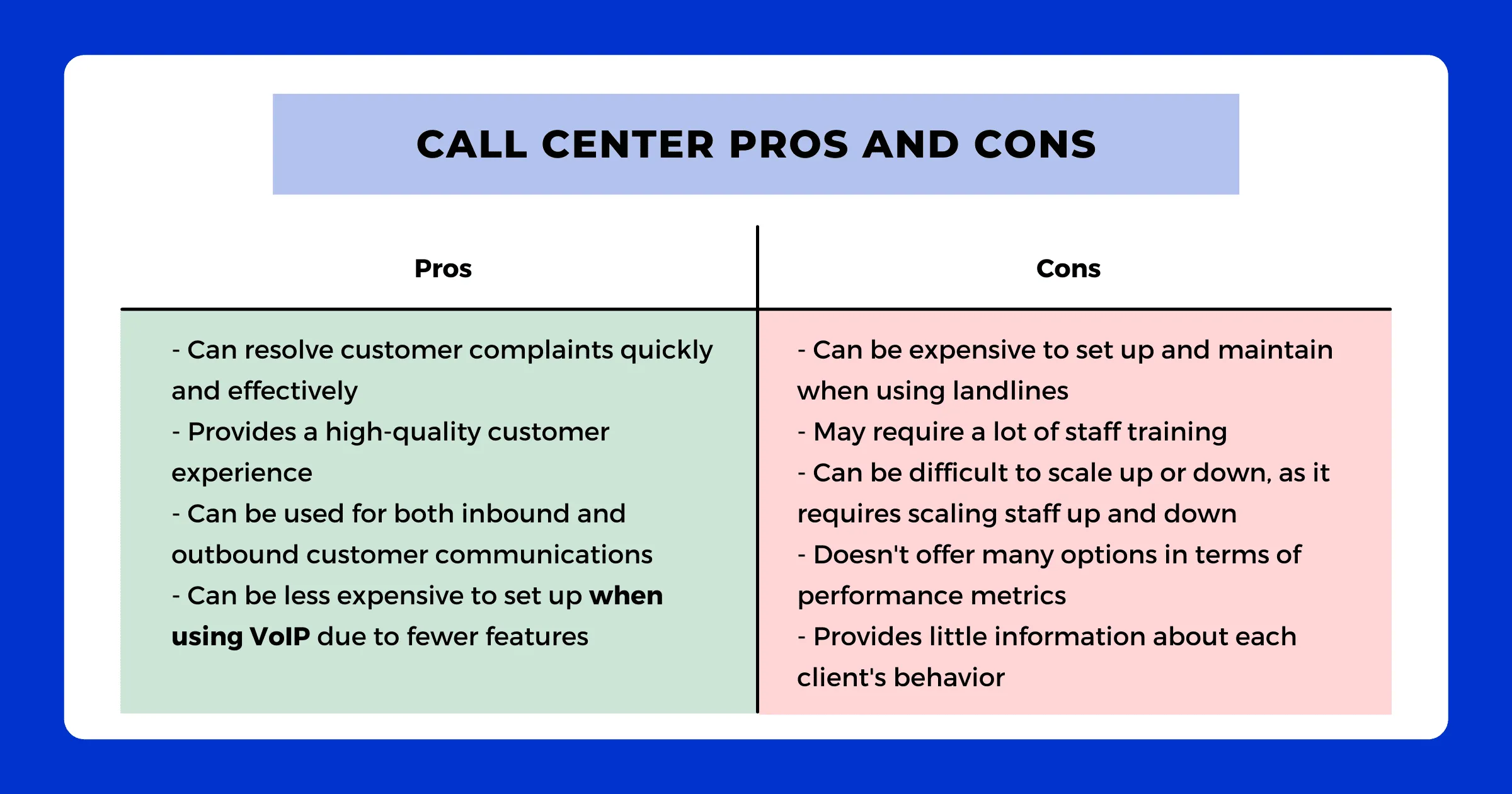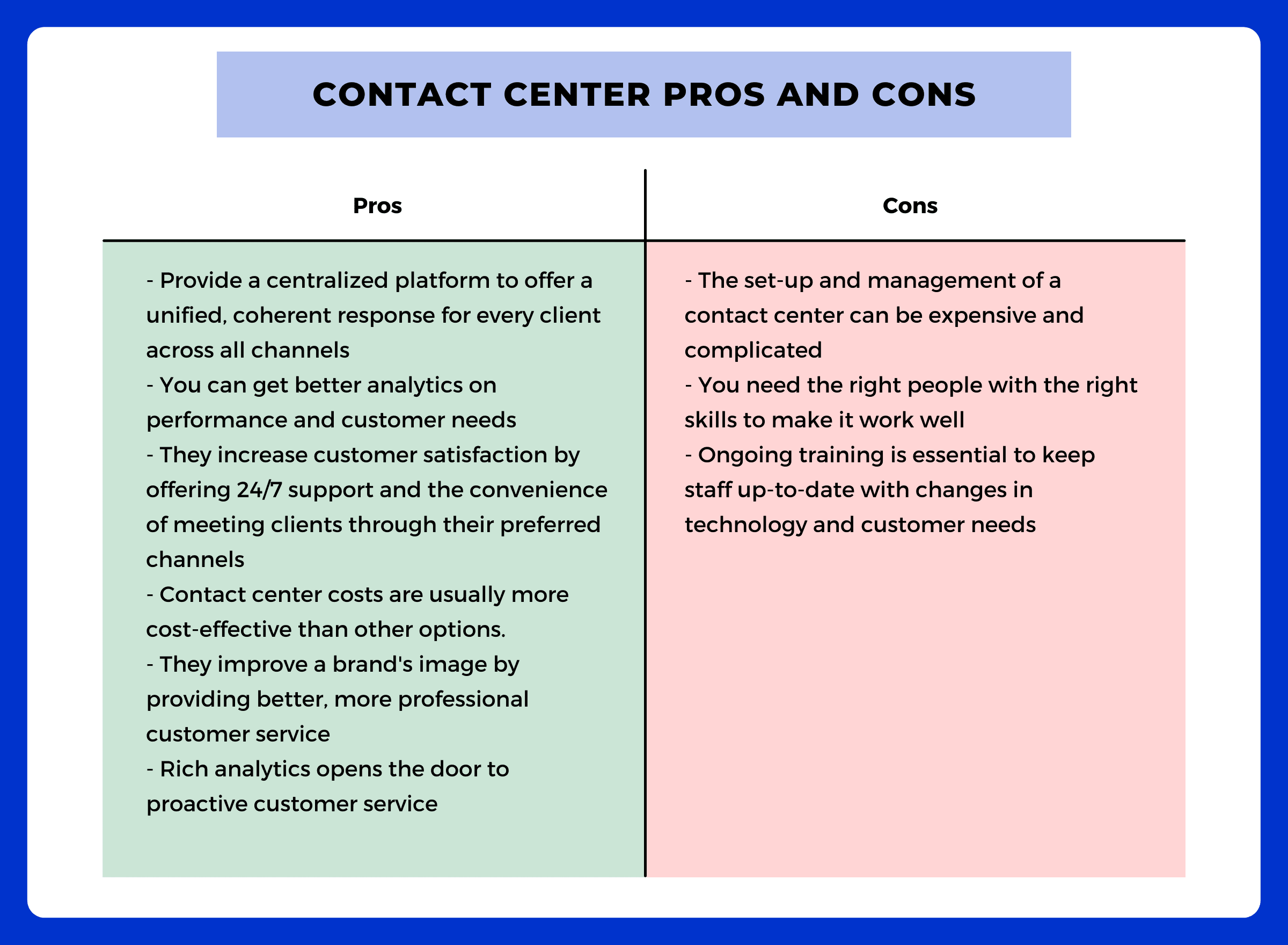


Start driving better conversations.
Novocall will be your new favorite business phone system.

When it comes to customer service, most people think of traditional call centers with a room full of agents donning headsets and making outgoing calls.
Many think the same thing when they hear about contact centers. In fact, if you’re a business owner, you’ve probably heard the terms ‘contact center’ and ‘call center’ used interchangeably.
However, they’re not the same thing. Both are designed to help you manage customer interactions, but there are some key differences.
In this blog post, we’ll explore what each one is and how to choose the right one for your needs.
A call center is a centralized customer service operation that takes in customer calls and provides support or solutions. It also handles outbound customer communications, such as surveys, marketing campaigns, and sales.
A call center is typically a voice-only operation, though it may also offer chat support.
In other words, it is a customer service operation that typically handles customer inquiries and complaints over the phone, while also providing support for online transactions or sales.
The main goal of a call center is to resolve customer complaints and issues as quickly as possible while providing a high-quality customer experience.
💡 P.S. there are also inbound and outbound call centers, check it out here. 😉

A contact center, on the other hand, is a more holistic customer service solution that offers access to all types of communication channels, including voice calls, video calls, email, chat, social media, and more.
This gives customers more options for getting in touch with your business and can make it easier for them to find the help they need.
For example, a company based in the US that wants to provide effective customer service to someone in Australia will probably use a contact center. It offers many asynchronous and even automated communication channels that make it easy to handle the difference in time zones.

Businesses should be aware of several differences between call centers and contact centers before choosing which one is right for them.
This is the first and most obvious difference between the two.
While call centers focus solely on real-time phone or VoIP communication with clients, contact centers take advantage of every communication channel out there, including phone (generally VoIP), email, social media messengers, live chat, chatbots, and more.
This is a very important difference since having more channels to communicate with customers, some of which are asynchronous, means that a single agent can handle several customers at once, while a call center agent can only speak with a single client at a time.
Another big difference is that call centers are almost always outsourced, while contact centers are usually in-house. Businesses use a call center provider to staff their call center with agents, while contact centers are typically run by the business itself with its own employees.
Contact centers offer much better customer analytics than call centers.
With contact centers, businesses can track all interactions with clients across all channels, which gives a much more complete view of customer needs and preferences. This allows businesses to improve customer satisfaction by catering to the specific needs of their customers.
Furthermore, the centralized nature of a contact center and its easy integration with advanced customer relationship management (CRM) software makes it easier to track and analyze customer data, which can help businesses spot trends and react to them before they become a problem or to take advantage of them before the trends fade out.
Contact centers are usually more cost-effective to operate than call centers, even though they can be more expensive to set up.
This is mainly because of the number of channels offered and the additional features that contact centers offer. Some of them, such as chatbots and AI-driven customer service, help automate many repetitive tasks giving agents more time to attend to customers, reducing the average cost per served customer.
On the other hand, call centers are cheaper to set up since they rely only on phone communication. This can be an important factor for businesses that don’t have the resources or the need for all the features offered by contact centers.
As mentioned before, contact centers require staff with a wider range of skills than call centers.
Staff in contact centers need to be able to use all the different communication channels and be knowledgeable about the company’s products and services to help customers with their inquiries. They also need to be good writers, a skill not needed for call center agents.
This makes staffing a contact center more expensive and complicated than staffing a call center. It’s also important to note that the staff in a contact center needs to be constantly trained on new technologies and changes in customer needs, while call center staff only need to be trained once and then left alone to do their job.
Call centers are primarily used for customer service, technical support, telemarketing, and sales. Contact centers can be used for that and more, adding a critical aspect of today’s most competitive businesses: customer relationship management integration, which is not possible for call centers.
Contact centers are much more scalable than call centers. This is because, as a business grows and needs to handle more customer interactions, it can simply automate repetitive processes to free up agents so they can handle the increased volume of requests.
On the other hand, call centers can only scale by hiring more agents since each agent can only handle one call at a time.
It is clear by now that contact centers are the evolution of call centers and offer much better features for most companies. But does that mean that the call center is dead on its feet?
Absolutely not!
Some businesses would be better off using a call center instead of a contact center. Businesses that are smaller and don’t need all the features offered by contact centers or don’t have the resources to set up and operate a contact center can benefit from using a call center.
In addition, businesses whose main interaction with customers is through phone calls only can use a call center. Businesses that target older individuals like retirees who are not as familiar with the internet and other communication channels are the best suited to implement call centers instead of contact centers.
Contact centers are usually best for large businesses that handle a high volume of outbound and inbound customer communications. If your customer support agents handle repetitive tasks that can be easily automated with AI tools, a contact center is a more logical choice.
In general, any large industry that relies heavily on high-quality customer service and support can benefit from the many tools that contact centers provide. The same goes for businesses in a highly competitive market where acquiring, sorting, combining, and analyzing client information is essential to maintaining a competitive edge.
Many B2B software providers rely on contact centers, and so do B2Cs with a large customer base if they need to be on call 24/7. One example of the latter is crypto exchanges since customers may need assistance when buying or selling assets at any time, and waiting too long for customer service could mean losing thousands of dollars.
So, should you use a call center or a contact center?
This heavily depends on your business needs.
Any business that wants to provide excellent customer service through multiple channels, offers products and services that are complex or needs to scale fast, or has a large customer base, should consider using a contact center.
On the other hand, call centers are still best for businesses whose main interaction with customers is through phone calls only, who don’t have the resources to set up and operate a contact center, or whose target demographic is older individuals.
In summary, choosing between a call center and a contact center should be made after carefully considering all the needs of your business and your clients.

Jordan Bishop is the founder of Yore Oyster and How I Travel, two sites to help you optimize your finances while living an international life. He recently published his first book, Unperfect, an exploration of problem solving.
Related articles
Subscribe to our blog
Get insights & actionable advice read by thousands of professionals every week.

